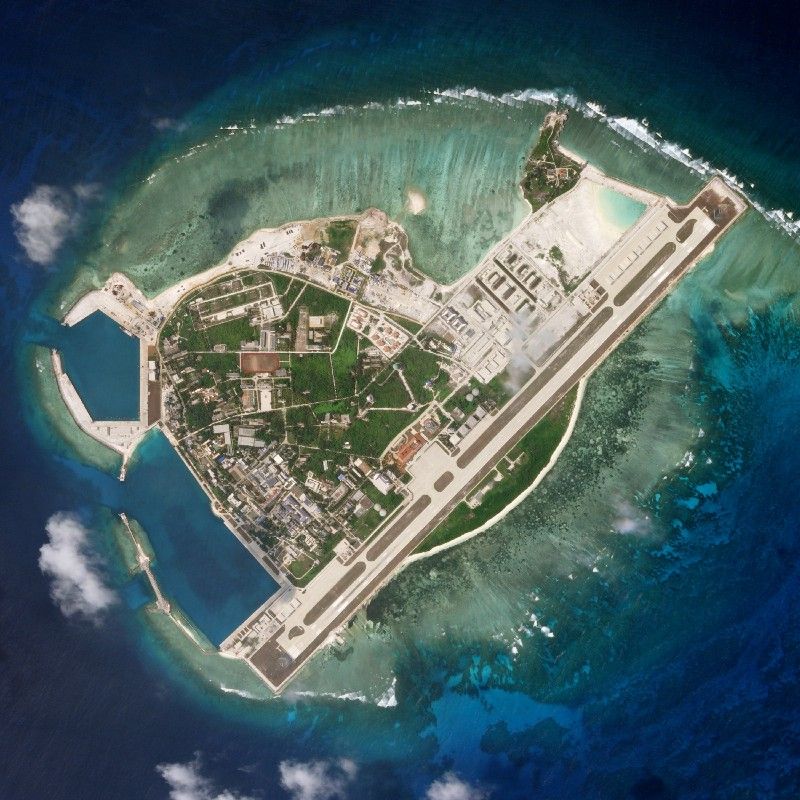Over the past two weeks, the following things have happened on, near, or because of Woody Island (pictured above), a controversial Chinese military outpost in the South China Sea:
- China landed nuclear-capable long-range bombers on an airstrip on the island.
- The US disinvited China from a major international naval exercise in Hawaii, citing missile installations elsewhere in the region and the bomber landings as factors in rising tensions.
- A US destroyer and guided missile cruiser steamed within a few nautical miles of shore, prompting sharp objections from Beijing.
Normally, this wouldn’t be all that remarkable. China’s military ambitions in the South China Sea are well known, and strategic tit-for-tat is commonplace. But the latest ratcheting up of military activity and rhetoric comes at a time when the US and China are engaged in delicate negotiations on other key issues like US-China trade and North Korea.
Stuff happens–particularly when there is heavy hardware operating at close quarters. And we live in a complex and interconnected world, where a miscalculation or accident in one arena can have knock-on effects elsewhere. Rising tensions in the South China Sea add another layer of complexity to what was already a volatile mix of competing national interests.
